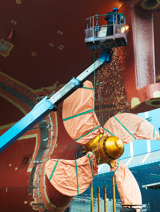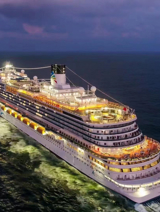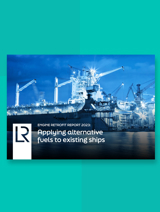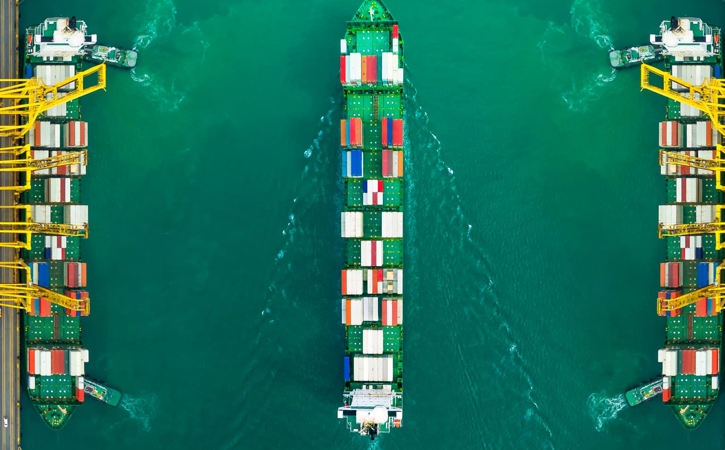Members cover the entire maritime supply chain
The current membership of The Silk Alliance comprises stakeholders across the entire value chain of shipping, involving private and public organisations.
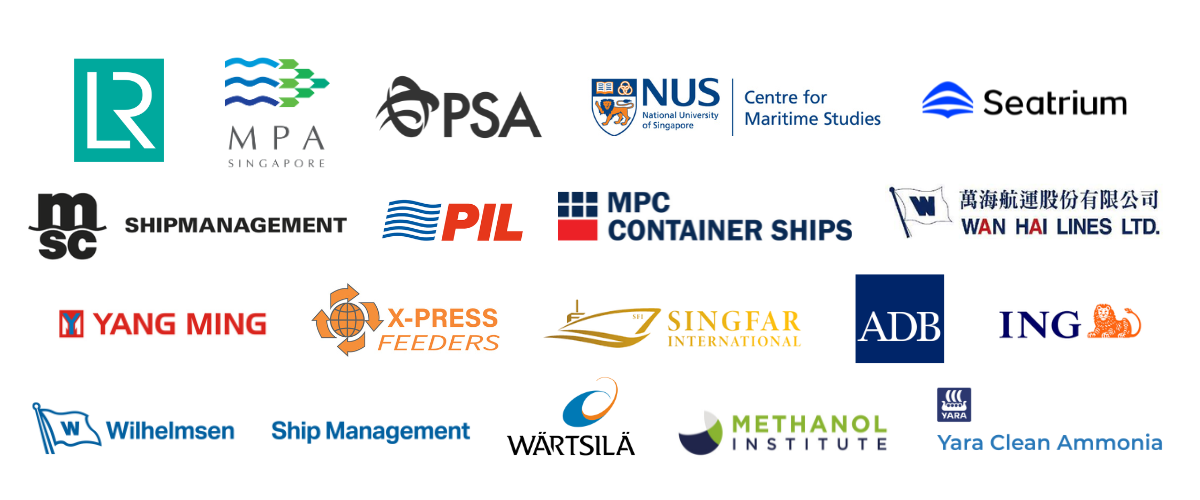
First Mover Framework
The Silk Alliance work programme started in 2021 with the development of Lloyd’s Register First Mover Framework, which underpins the process taken to form a green corridor. This framework analyses the supply and demand together using a scenario-based model to understand the fuel demand for a specific fleet and how it evolves over time, facilitating predictions on the costs and emissions to decarbonise.
The process
The First Mover Framework process follows three steps:
- System-thinking stage: Bringing together the experiences of all the members to build a common understanding of the challenges and co-prioritise opportunities and threats.
- Foresight: Formulating strategies and scenarios which are subsequently developed and assessed.
- Co-creation: Validation and consensus of the decarbonisation pathway, with a follow-up action plan for implementation.
The key focus will be on attracting investment in zero-emissions infrastructure and technology in Singapore and the wider Asia region, and kickstart the adoption of solutions where benefits to the “first movers” outweigh the risks being taken at this early stage of shipping’s decarbonisation.
Evolving scope of The Silk Alliance
The Silk Alliance started as a project focusing on delivering a decarbonisation plan for a fleet of small-medium containerships operating in a route between Singapore and another port.
It has now evolved into a programme focusing on creating and implementing a green corridor roadmap based around a decarbonisation plan for a fleet that predominantly operates and refuels in Singapore, which includes different vessel types trading across multiple ports from the Pacific Islands, Southeast Asia, North Asia to East Africa.
The next stage
The Silk Alliance seeks to expand to a wider demand sector and grow to include other ship types, fuel producers and governments. This allows refinement and deployment of the First Mover Framework to generate data to which decisions can be made, including the scope and timing of green corridor.
The next stage will be developing The Silk Alliance green corridor cluster implementation plan through to mid-2023 and then developing the process to undertake and execute projects with maximum impact. This will capture all the required steps and components to have a successful green corridor in operation and initiate projects and workstreams to do so.
The baseline fleet
Based on the fleet data provided by the members, the baseline fleet of the green corridor cluster was defined as:
- Vessels already predominantly operating in the identified area and already refueling in Singapore.
- Vessels mainly operating in the region and likely to refuel in Singapore.
- Vessels that operate their roundtrips within the identified region and still have the ability to refuel in a single point.
The baseline fleet currently comprises 337 containerships across small, medium and large size categories, with aggregated fuel demand of 3m tonnes of HFO (heavy fuel oil) per year.
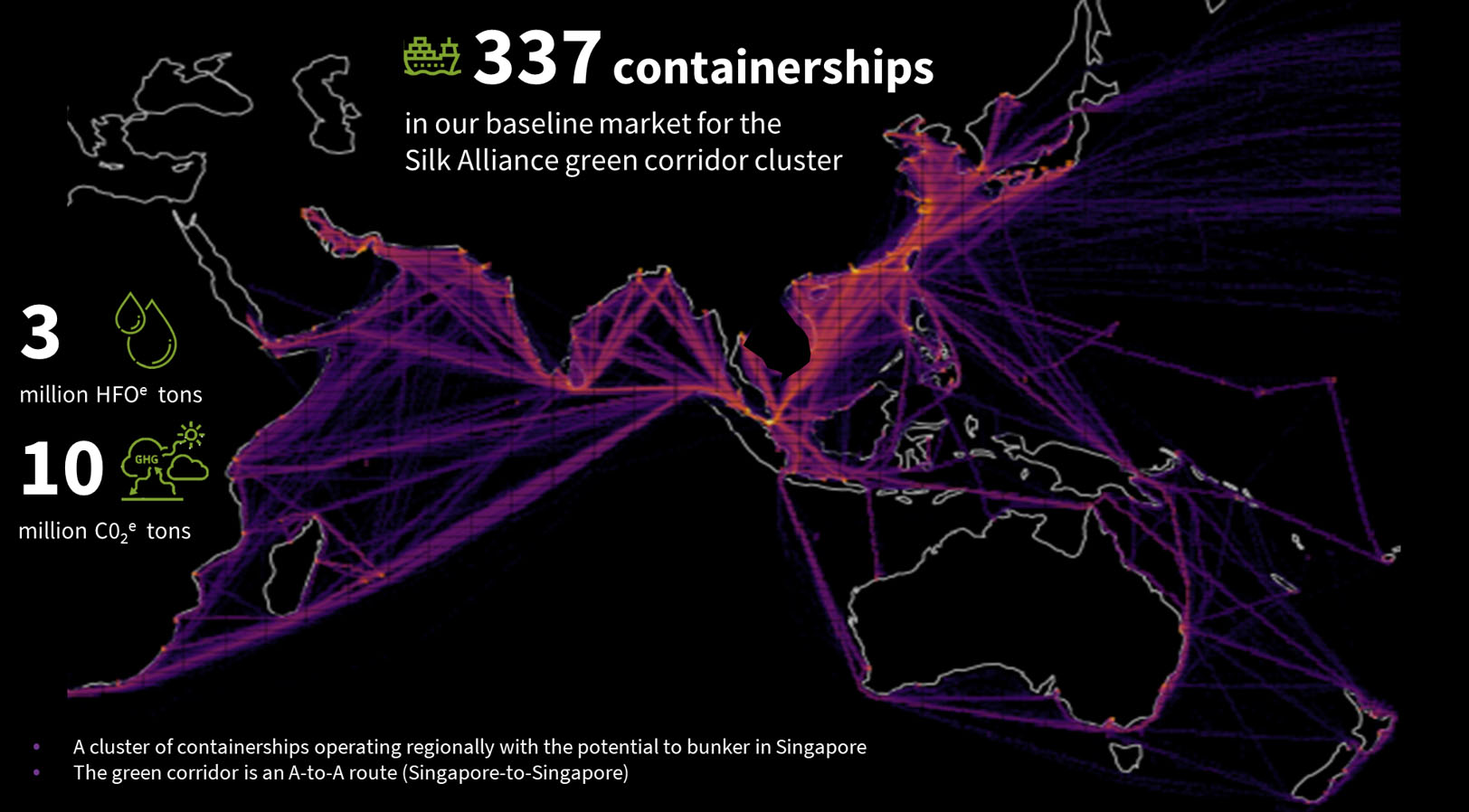
PSA is pleased to be a member of the Silk Alliance, joining other global maritime industry partners to pave a path towards increased maritime decarbonisation. As a trusted hub port and partner to global supply chain stakeholders, PSA remains steadfast in its commitment to the green and sustainable global movement of goods, including accelerating our digital solutions to enhance port and supply chain efficiency and resilience.
We are committed to play a role in the decarbonisation of the maritime industry. As the shipyard partner in The Silk Alliance, Keppel O&M is pleased to contribute its deep engineering expertise in vessel design and operations, as well as extensive experience in vessel upgrading, which can help shipowners and managers improve the energy efficiency and carbon intensity of their fleets and operations.



